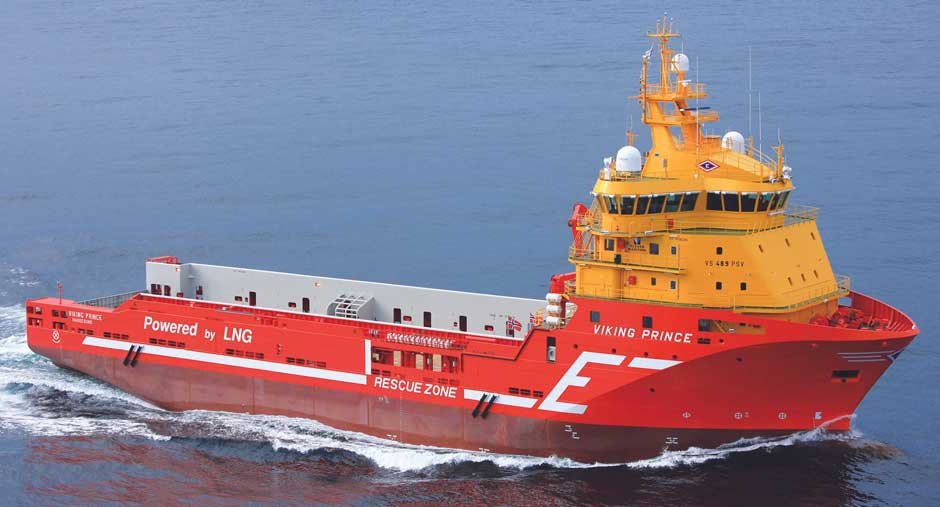Offshore Support Vessels (OSVs) are the backbone of the maritime industry, providing crucial support to oil and gas operations and ensuring environmental sustainability. For professionals in the maritime sector, understanding the role, types, and future trends of OSVs is essential. This article aims to shed light on these floating lifelines, their importance, and their impact on our world.
Introduction to Offshore Support Vessels (OSVs)
Offshore Support Vessels, commonly known as OSVs, are specialised ships designed to support maritime operations, particularly in the oil and gas industry. They are the unsung heroes of offshore projects, playing a pivotal role in ensuring smooth and efficient operations at sea.
OSVs cater to a wide range of functions, from the transportation of goods and personnel to emergency response and environmental protection. Their versatility and adaptability make them indispensable assets in the maritime world.
Understanding the intricacies of OSVs can provide valuable insights into their significance in the global economy and their impact on various industries. Let’s explore the multifaceted world of Offshore Support Vessels.
Role and Importance of OSVs in the Maritime Industry
The maritime industry relies heavily on OSVs for a multitude of operations. These vessels are essential for transporting equipment, supplies, and personnel to and from offshore platforms and vessels. Without them, the logistical challenges of offshore operations would be insurmountable.
OSVs also play a critical role in emergency response situations. They are equipped with advanced technology and personnel trained to handle oil spills, fires, and other maritime emergencies. This capability ensures the safety and security of offshore installations and the environment.
In addition to their operational functions, OSVs contribute significantly to the economic viability of offshore projects. By streamlining logistics and providing essential support services, they help reduce operational costs and improve efficiency.
Types of Offshore Support Vessels and Their Functions
Offshore Support Vessels come in various types, each designed for specific functions. Understanding these types can help industry professionals choose the right vessel for their needs.
- Platform Supply Vessels (PSVs) – PSVs are designed to transport supplies and equipment to and from offshore drilling rigs and platforms. They have large open decks for cargo storage and are equipped with cranes for loading and unloading.
- Anchor Handling Tug Supply Vessels (AHTSs) – AHTSs are used for towing and positioning drilling rigs, as well as handling anchors and mooring systems. They are powerful vessels capable of performing heavy-duty tasks in challenging conditions.
- Multipurpose Support Vessels (MPSVs) – MPSVs are versatile vessels that can perform a wide range of functions, including subsea construction, maintenance, and repair. They are equipped with advanced technology and specialised equipment to handle complex tasks.
Each type of OSV plays a vital role in ensuring the success of offshore operations. Their specialised functions contribute to the overall efficiency and safety of maritime projects.
Evolution and Modern Innovations in OSVs
The evolution of OSVs has been marked by significant advancements in technology and design. Today’s OSVs are equipped with state-of-the-art navigation systems, dynamic positioning technology, and advanced communication tools.
Modern innovations have also led to the development of more environmentally friendly OSVs. These vessels are designed to minimise their environmental impact through fuel-efficient engines, reduced emissions, and sustainable practices.
The integration of automation and digitalisation has further enhanced the capabilities of OSVs. Remote monitoring, predictive maintenance, and data analytics are now integral components of modern OSVs, improving operational efficiency and reducing downtime.
OSVs and Their Critical Role in Supporting the Oil and Gas Industry
The oil and gas industry is heavily dependent on OSVs for its offshore operations. These vessels provide essential support services, ensuring the smooth functioning of drilling, production, and maintenance activities.
OSVs transport drilling equipment, chemicals, and other supplies needed for offshore operations. They also provide accommodation and catering services for personnel working on offshore platforms, ensuring their safety and well-being.
In addition to their logistical functions, OSVs play a crucial role in subsea construction and maintenance. They are equipped with specialised equipment and technology to perform complex tasks such as underwater inspections, repairs, and installations.
Environmental Impact of OSVs and Sustainable Practices
While OSVs are essential for offshore operations, their environmental impact cannot be ignored. The maritime industry has been actively working towards reducing the carbon footprint of OSVs through innovative technologies and sustainable practices.
Many modern OSVs are equipped with hybrid propulsion systems that reduce fuel consumption and emissions. The use of LNG (Liquefied Natural Gas) as a cleaner alternative to traditional marine fuels is also gaining traction.
Sustainable practices such as waste management, pollution control, and energy-efficient operations are being implemented to minimise the environmental impact of OSVs. These efforts are crucial in ensuring the long-term sustainability of the maritime industry.
Future Trends in Offshore Support Vessels
The future of OSVs is promising, with several trends shaping the industry. The adoption of autonomous and remotely operated vessels is on the rise, offering new possibilities for offshore operations.
Technological advancements such as artificial intelligence, machine learning, and the Internet of Things (IoT) are expected to further enhance the capabilities of OSVs. These technologies will enable real-time monitoring, predictive maintenance, and data-driven decision-making.
The focus on sustainability will continue to drive innovations in OSV design and operations. The development of eco-friendly vessels and the implementation of green technologies will play a crucial role in reducing the environmental impact of offshore operations.
Conclusion The Ongoing Significance of OSVs in the Global Economy
Offshore Support Vessels are the lifeblood of the maritime industry, providing essential support to offshore operations and ensuring environmental sustainability. Their versatility, advanced technology, and specialised functions make them indispensable assets in the global economy.
As the maritime industry continues to evolve, so will the role of OSVs. The integration of new technologies, sustainable practices, and innovative designs will drive the future of OSVs, ensuring their continued significance in the offshore sector.
Whether you are a maritime professional, an oil and gas company, or an environmentalist, understanding the role and importance of OSVs is crucial. These vessels are not just supporting offshore operations; they are shaping the future of the maritime industry.
Frequently Asked Questions
What is the difference between a supply vessel and a support vessel?
A supply vessel is specifically designed to transport supplies and equipment to and from offshore platforms. A support vessel, on the other hand, encompasses a broader range of functions, including transportation, emergency response, and subsea construction.
What is a support vessel used for?
A support vessel is used for a variety of functions, including transporting supplies and personnel, handling anchors and mooring systems, performing subsea construction and maintenance, and providing emergency response services.
Why is it called offshore?
The term “offshore” refers to activities that take place away from the shore, typically in the open sea. Offshore operations are conducted in deep waters, often far from the coast, and require specialised vessels and equipment to support them.







